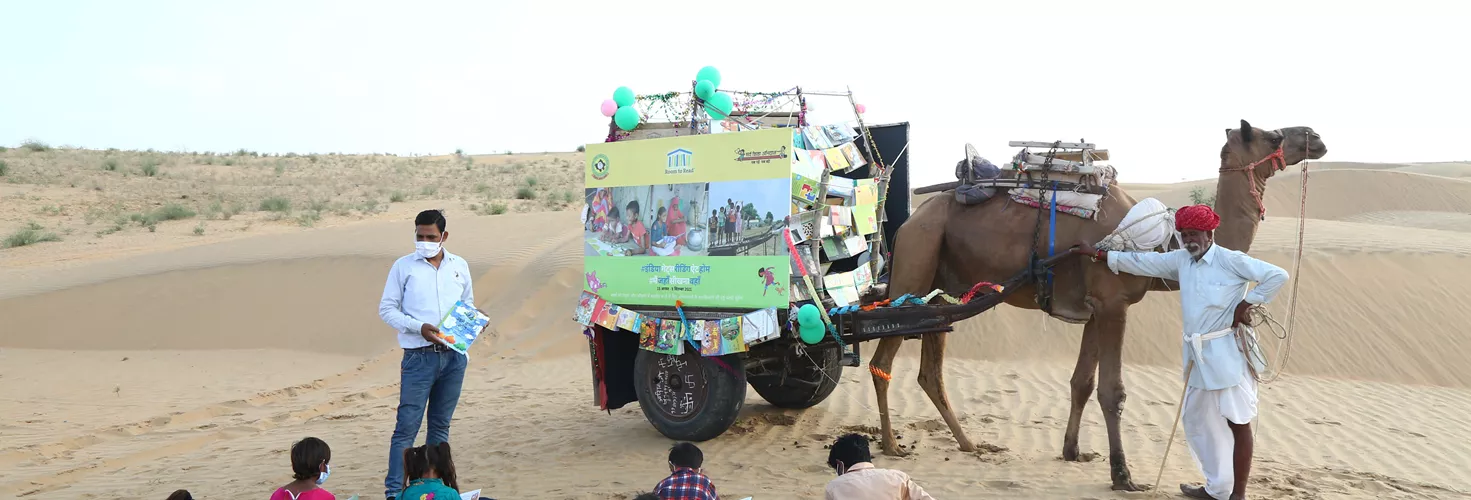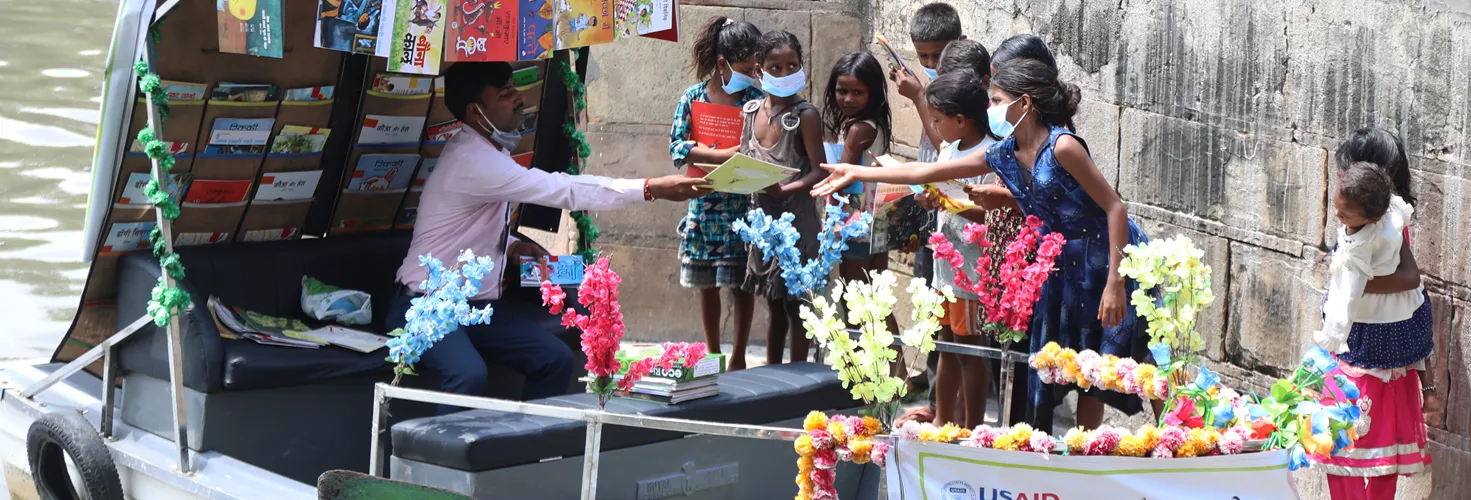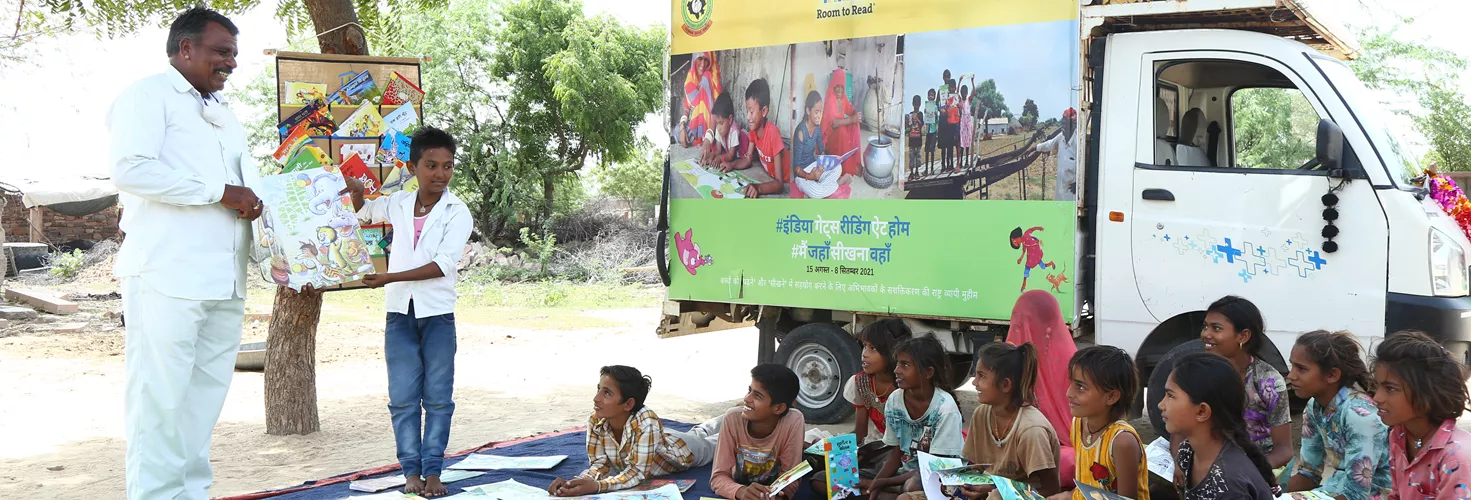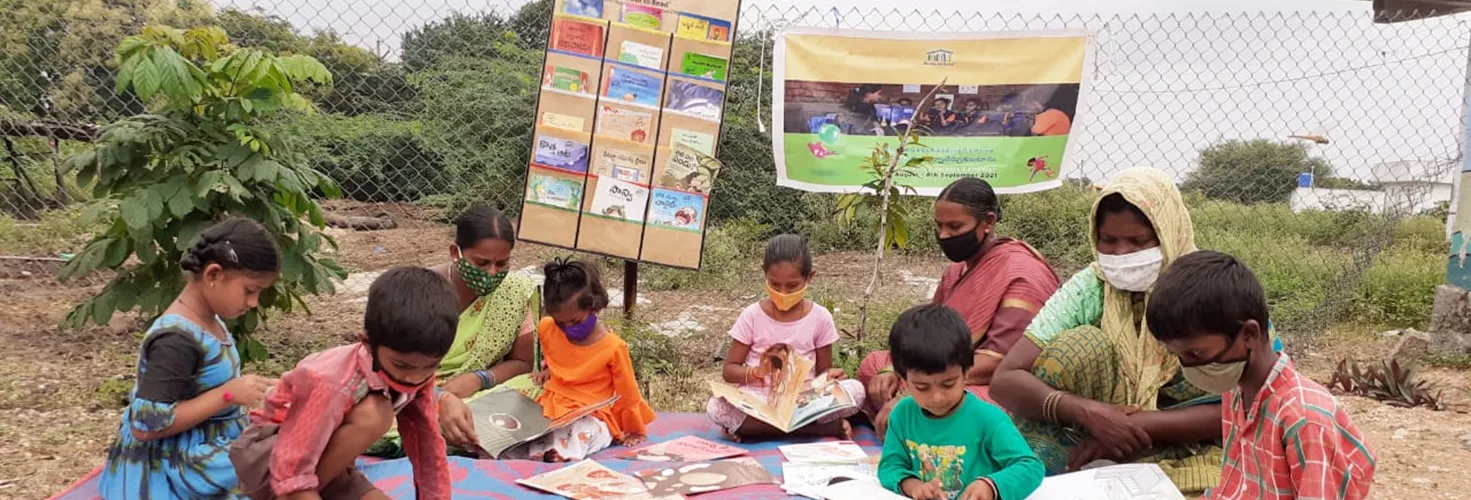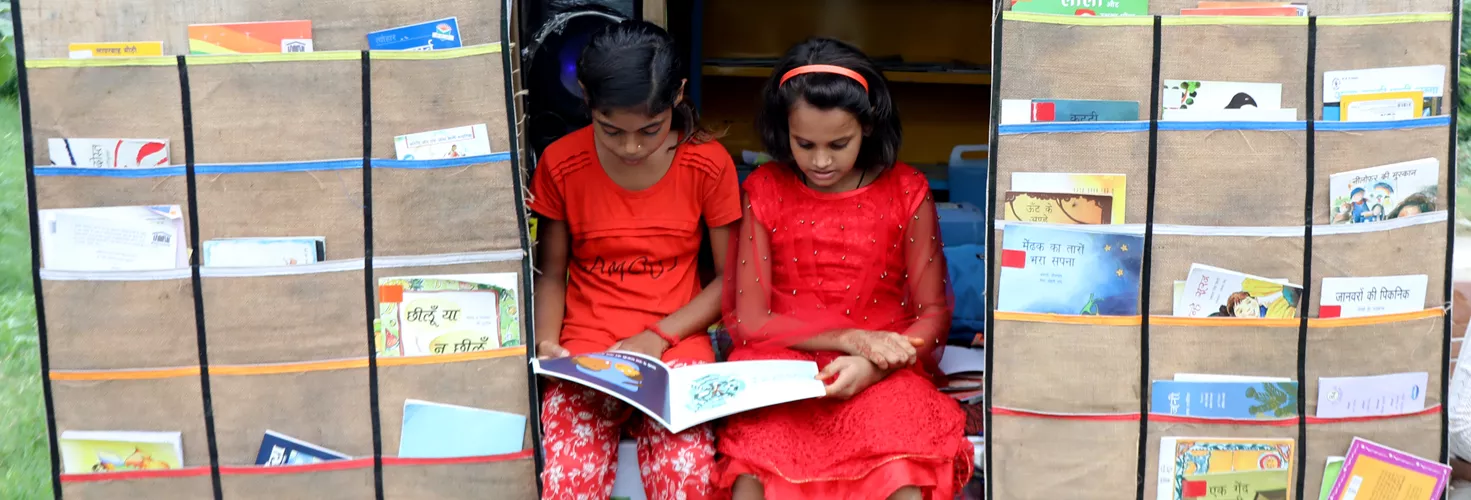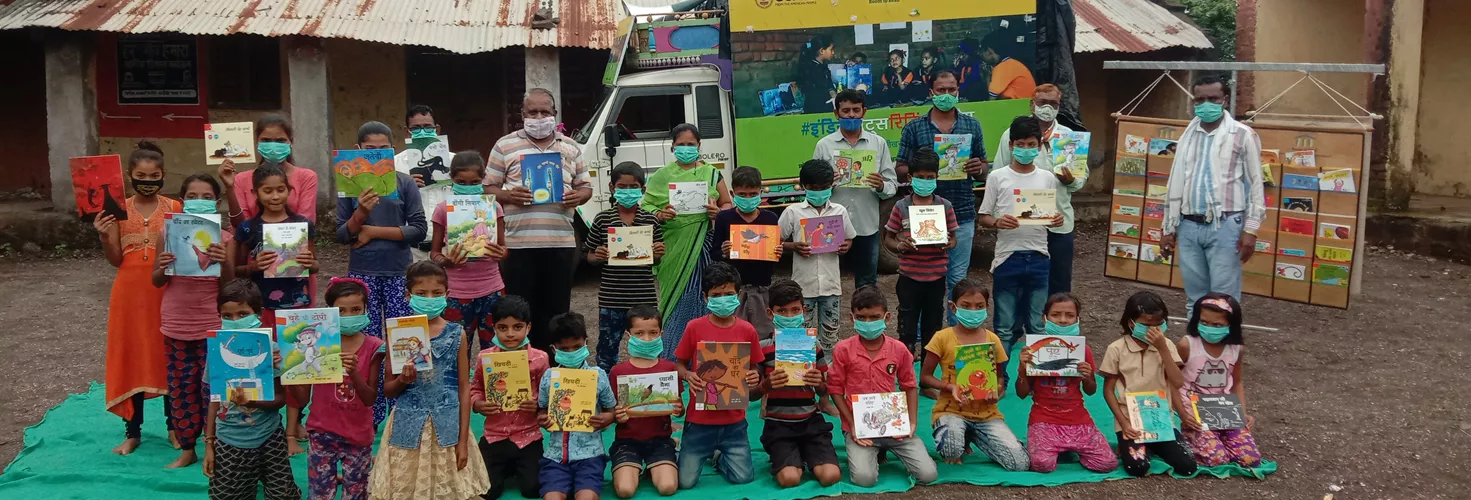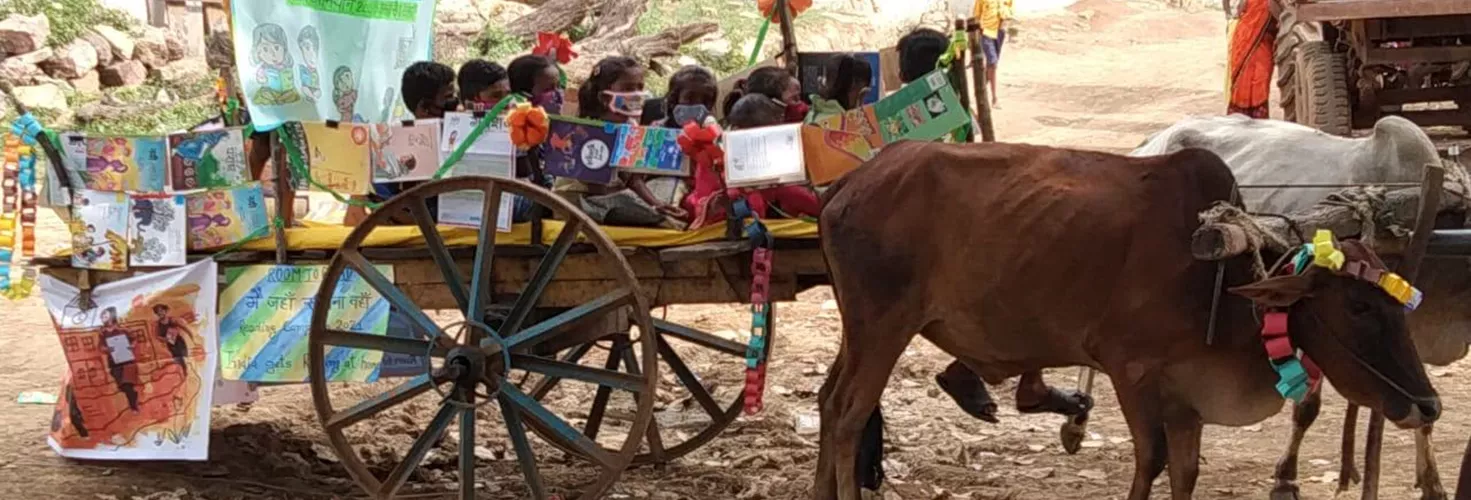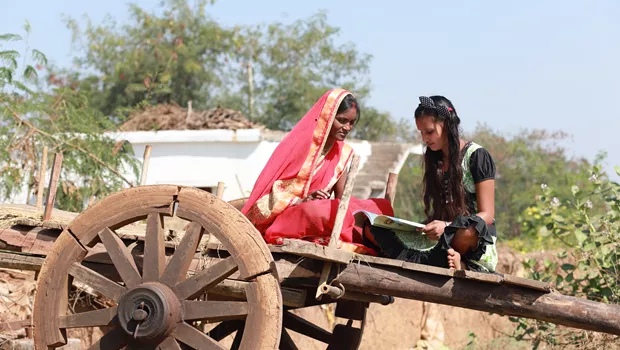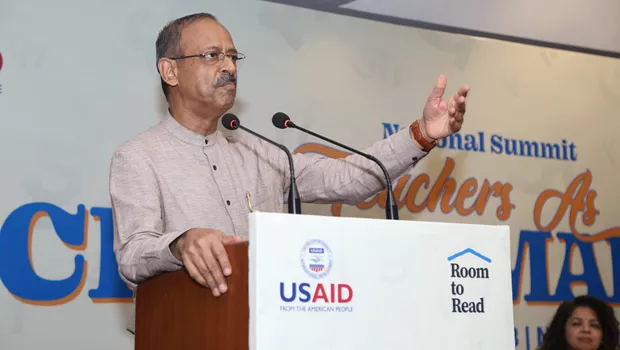In the wake of COVID-19, the issue of “learning loss” has been discussed by policymakers, educators, parents and communities around the world. The pandemic has revealed the importance of creating cohesion across multiple learning ecosystems — homes, schools, and communities must work together to provide a stable environment for learning foundational literacy skills.
India has been facing a learning deficit for a long time, even before the global pandemic hit. Its impact on an entire generation has been enormous. A whole generation of children is growing into adults with severe learning losses. Even prior to the COVID-19 pandemic, according to World Bank’s 2017 estimates, 55% of India’s 5th-grade children are unable to read and understand a short, age-appropriate text. The pandemic tormented the education system in India and disrupted learning for over 250 million children, worsening the learning crisis.
In addition to missing out on classroom learning, children also lost progress from previous school years. With nearly 1 in 4 residents below the age of 14, India today stands at an inflection point; where we go from here depends in large part on our ability to bring parents, caregivers, and communities to the frontline and support them with resources to ensure learning is possible anywhere.
On India’s 75th Independence Day, August 15th, 2021, Room to Read launched the “India Gets Reading At Home” campaign to offer creative, effective and easy solutions for promoting at-home learning, and to recognize the enhanced role of parents, guardians and caregivers in supporting children’s learning during this crisis. The campaign intended to negate the impact of the pandemic that has severely impacted the education system across India and the lives of young children.
Room to Read believes that every parent or caregiver can support a child's learning and create a strong learning environment even if they have little time or limited resources. Room to Read distributed thousands of literacy kits to families nationwide to help parents support their children’s cognitive development in four different languages – Hindi, Marathi, Telugu and Kannada.
During the campaign, Room to Read created state-of-the-art innovative mobile libraries to reach even the most remote regions across nine different states. The Camel Cart Library in Rajasthan, the Bullock Cart Library in Chhattisgarh, the Boat Library in Uttar Pradesh, the Bike Library in Madhya Pradesh, Community libraries in Delhi and Mobile Libraries across nine states ensured that learning remained possible in every corner of the nation.

By the end of the campaign on September 8th, International Literacy Day, Room to Read had reached 707,233 individuals through offline initiatives and reached 609,705 people online through five social media platforms. Stories of children reading to their parents and stories of entire families reading together have reinforced our belief that reading and learning are possible anywhere.
With schools remaining closed for a year due to the pandemic, the learning crisis has certainly increased, as many children do not have access to technology to continue school remotely. While the health crisis has taken priority over everything else, and rightly so, we must not overlook the intangible learning loss that threatens the futures of children around the world.
Room to Read’s #IndiaGetsReadingAtHome campaign was an active enabler for India’s education system, bridging the gaps to ensure we provide children with what they deserve — a strong educational foundation on which to build their future as they return to school.
We’re excited to share some photos from the campaign below.
Click here to learn more about Room to Read’s Literacy Program and how you can support students to become life-long independent readers.

